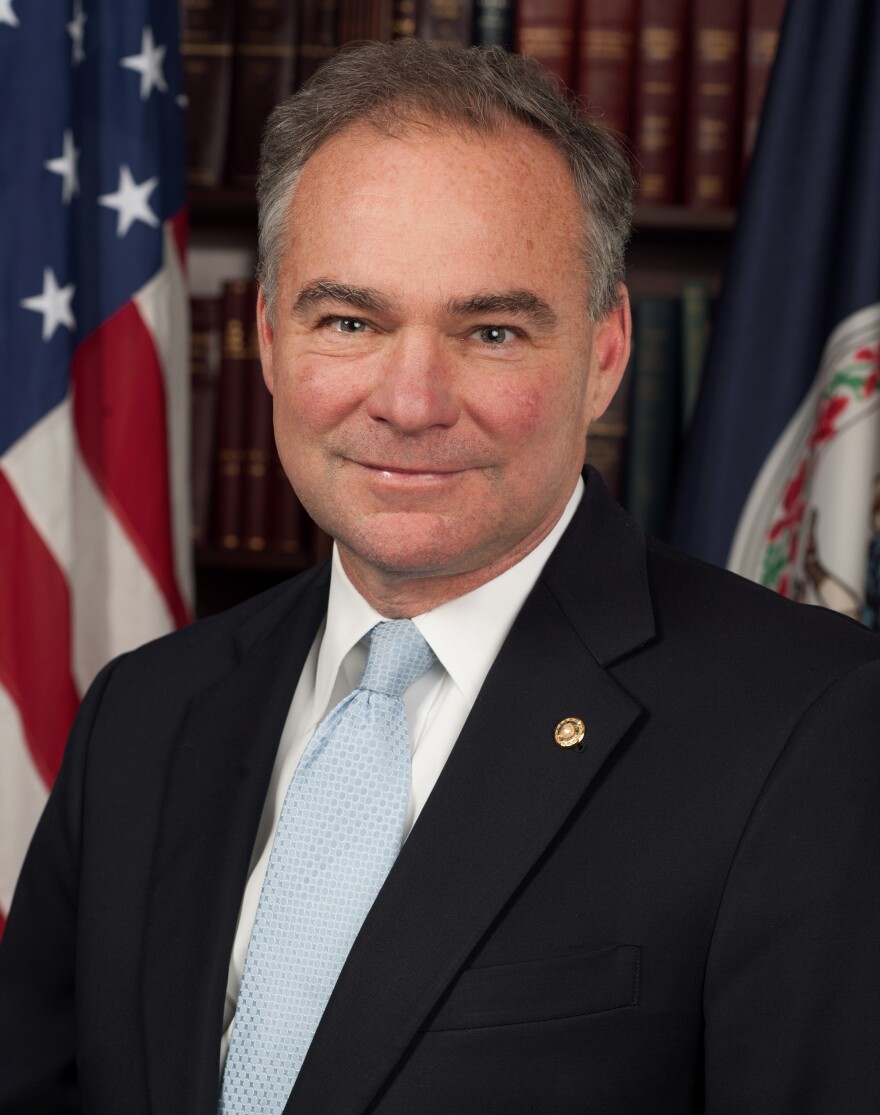The threat of a government shutdown is looming once again over Washington this fall, and that makes Virginia ground zero for the battle once again.
Studies have shown Virginia gets hit hardest by government shutdowns, and the growing chatter of another potential shutdown over President Trump’s border wall has a bipartisan group of Virginia lawmakers bracing.

After the last historic shutdown under Trump, Virginia Democratic Senator Tim Kaine and others were able to pass a law guaranteeing back pay for federal workers impacted by any future shutdowns. Kaine hopes that law will make leaders of both parties avoid the political stalemate that led to the last one. “My goal was, both to give a back pay guarantee, but once you have guaranteed that you’re going to stroke a check and everybody’s going to get their money, why would you shut government down," Kaine surmises.
"So we do view it as sort of a, if not a complete failsafe, kind of an emergency brake.”
But Kaine’s legislation doesn’t extend to the thousands of federal contractors spread across the Commonwealth. He has legislation to protect those companies in the future, but he’s still trying to get GOP leaders to bring it up for a vote. “The contractor bill is still out there and so I hope we might be able to do something on that but we haven’t yet gotten, basically, a commitment that that will come up for a vote,” Kaine says.

Western Virginia Republican Congressman Ben Cline says he hasn’t seen Kaine’s or other proposals aimed at protecting the Commonwealth and the nation from shutdowns. And while he opposes government shutdowns, he fears the legislation could backfire. “I’m not sure whether taking off the table pressure to get an agreement is the best way to do that," Cline admits. "So I’m happy to take a look at it, but it’s probably a complex proposal with a lot of unintended consequences.”
Cline fears efforts to blunt the economic impact of shutdowns could actually make them last longer in the future. “If all that does is make the different sides more rigid in their positioning because there is no danger of a shutdown then you have an additional concern that’s created while you’re trying to solve a different one.”
While Southwest Virginia Republican Congressman Morgan Griffith also hasn’t seen the proposal, he’s more open to it. And he says one group of his constituents makes him lean towards supporting it: federal prison guards. “I have prison guards at U.S.P. Lee that don’t get paid," Griffith points out. "I mean, these are some of the worst guys in the federal penitentiary system – gang leaders from all over the world that get stuck in Lee County Virginia. And they’re not going to get paid? No, that’s wrong.”
Eastern Virginia Republican Congressman Rob Wittman has another proposal aimed at ending government shutdowns: No Budget, No Pay. It would stop all paychecks to federal lawmakers until they pass their annual budget. “It’s just illogical at every turn. I think what needs to happen is you say, ‘It’s members of Congress who don’t get a paycheck until they get the work done; until they get things completed.’”

Congress passed a short-term funding agreement at last year’s spending levels earlier this fall, but the money runs out just before Thanksgiving. And Wittman and others are bracing for what that may mean later this fall. “While we do have a budget deal, the Senate has only recently begun the process to begin appropriations bills. That is very late in the process," Wittman notes. "It does, I think, lend itself to a great possibility of a shutdown.”
Leaders of both parties are continuing to try to hash out their differences in order to avoid a shutdown, but with the politics of Trump’s border wall only intensifying, so are fears that the government’s lights may flip off later this year.
This report, provided by Virginia Public Radio, was made possible with support from the Virginia Education Association.

